
Lorne Trottier and Jean-Patrick Toussaint discuss the current status and challenges of climate change and the energy transition, focusing on the need for renewable energy and electrification to mitigate climate change.


Lorne Trottier and Jean-Patrick Toussaint discuss the current status and challenges of climate change and the energy transition, focusing on the need for renewable energy and electrification to mitigate climate change.
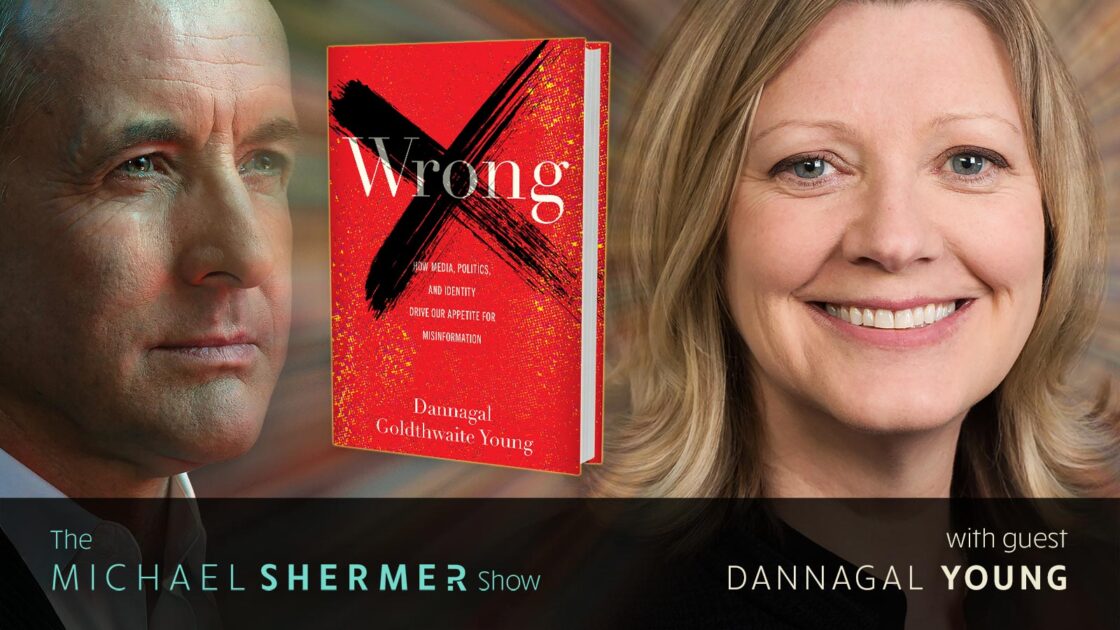
Shermer and Young discuss: how do you know if you are wrong, or that someone else is wrong • the evolution of reason: veridical perception or group identity? • the 3 “Cs” of our needs: comprehension, control, community • open-minded thinking • intellectual humility • political polarization • echo vs. identity chambers • social media • lies • disinformation • Donald Trump • democracy • science and morality • solutions to identity-driven wrongness.
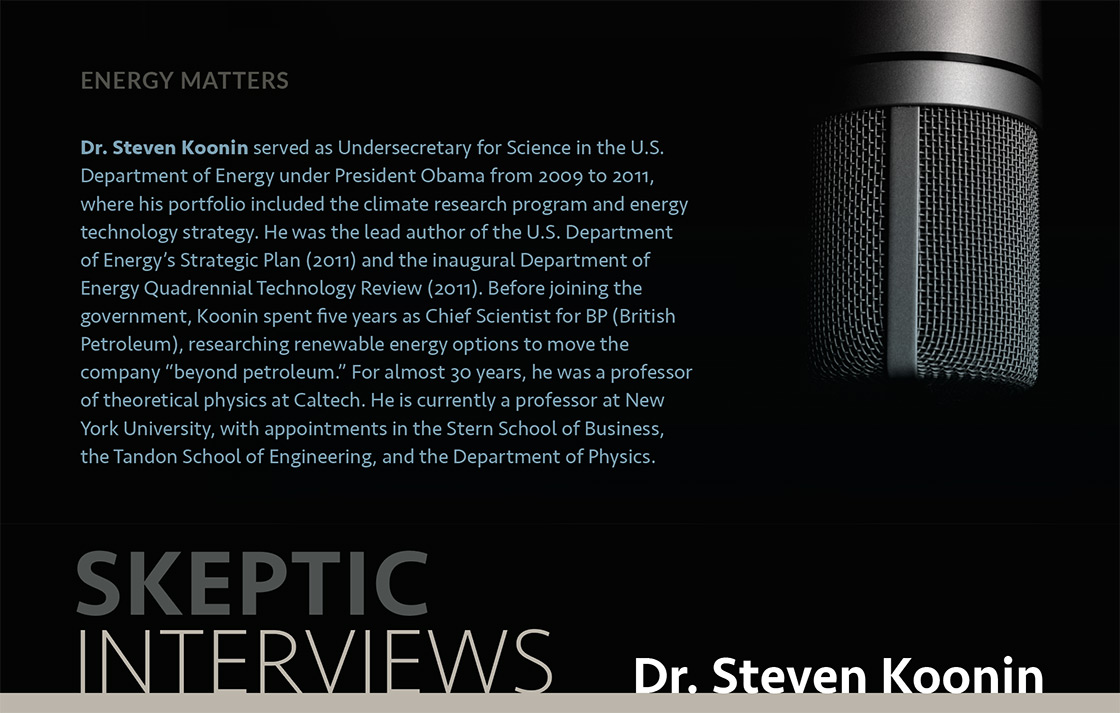
Skeptic: How did you get interested in energy? Koonin: I was educated in New York City public schools and grew up in a middle-class household. I went to Caltech as an undergrad, MIT for my PhD, and then returned to Caltech as faculty for 30 years. I was the Provost for the last nine. I […]
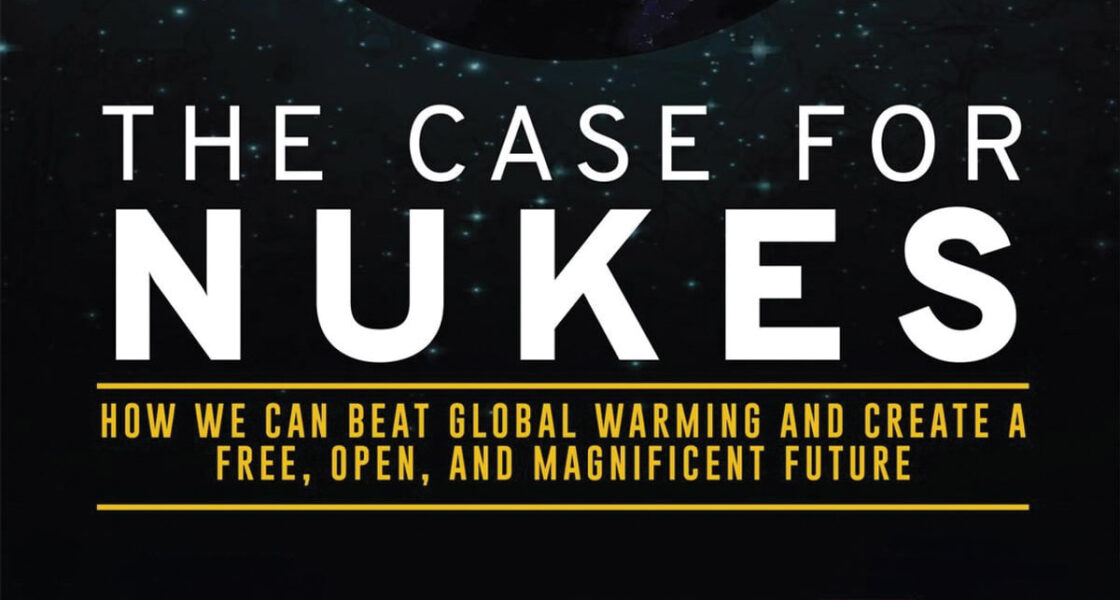
The world faces two energy crises: (1) too much, because we are changing the Earth’s climate and chemistry and so inviting global catastrophe; and (2) too little, because the bulk of humanity still lives in poverty, without enough for a decent standard of living. The answer to both is to go nuclear. Upon examination, the arguments made against nuclear energy, including: emissions, waste disposal, accidents, and proliferation are shown to be exaggerated, unfounded, or soluble using even currently available technology.
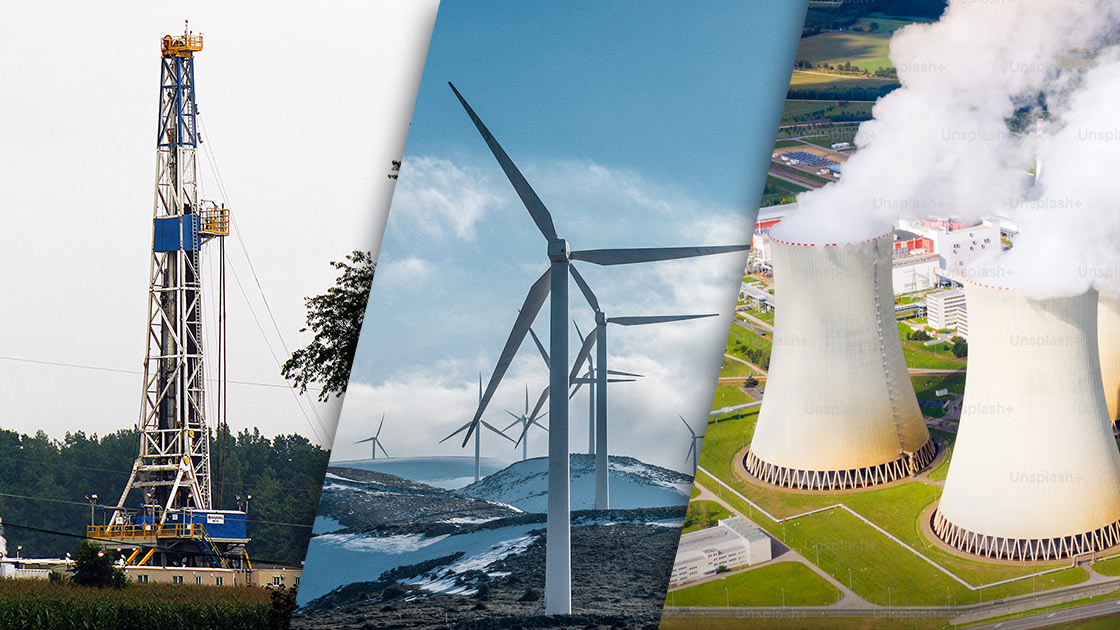
The Paris Accords have been a failure in reducing global warming. Solar and wind energy have not been the panacea environmentalists promised. To avoid catastrophic economic impacts, the United States needs to keep producing oil and gas until other ways of mitigating global warming can be found. Fracking has helped turn the United States into the world’s leading oil and gas producer. But the health of future Earth relies on keeping a strong economy while we transition away from oil…
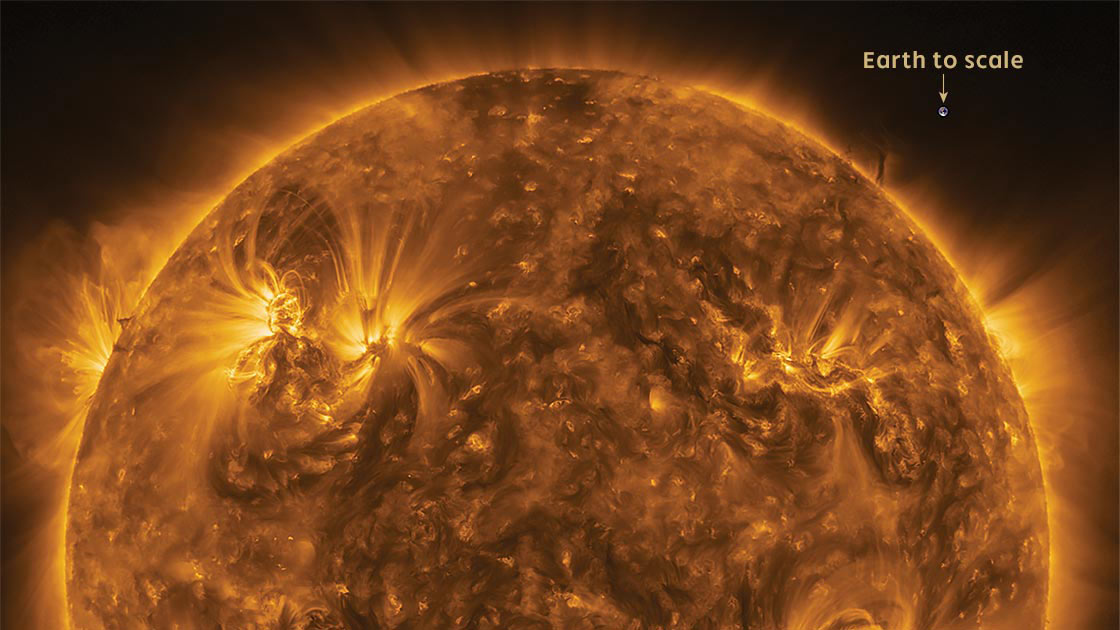
Advances in civilization are driven by the availability of excess energy. As the human population has exploded over the past two centuries, the global consumption of energy has also drastically expanded. But the current economic model is unsustainable without the development of a clean, unlimited source of energy. Space-based solar power (SBSP) can directly access the power of the Sun, and has the potential to be that clean, unlimited baseload power source of energy for the entire planet.
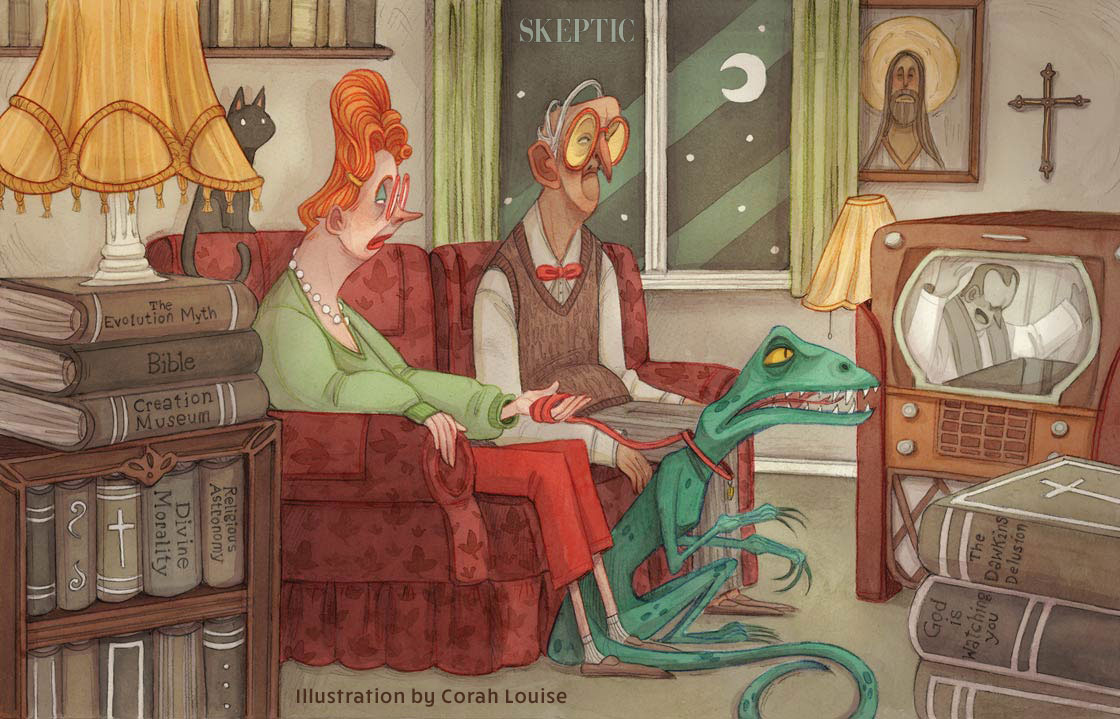
Science and religion present two paradoxes in the United States. On the one hand, the U.S. is the undisputed world leader in science. Yet, the U.S. is also the wealthy industrialized country with the most widespread skepticism about science, most notably regarding climate change, vaccines, and evolution. How can those two seemingly incompatible facts be reconciled? This article solves this paradox.
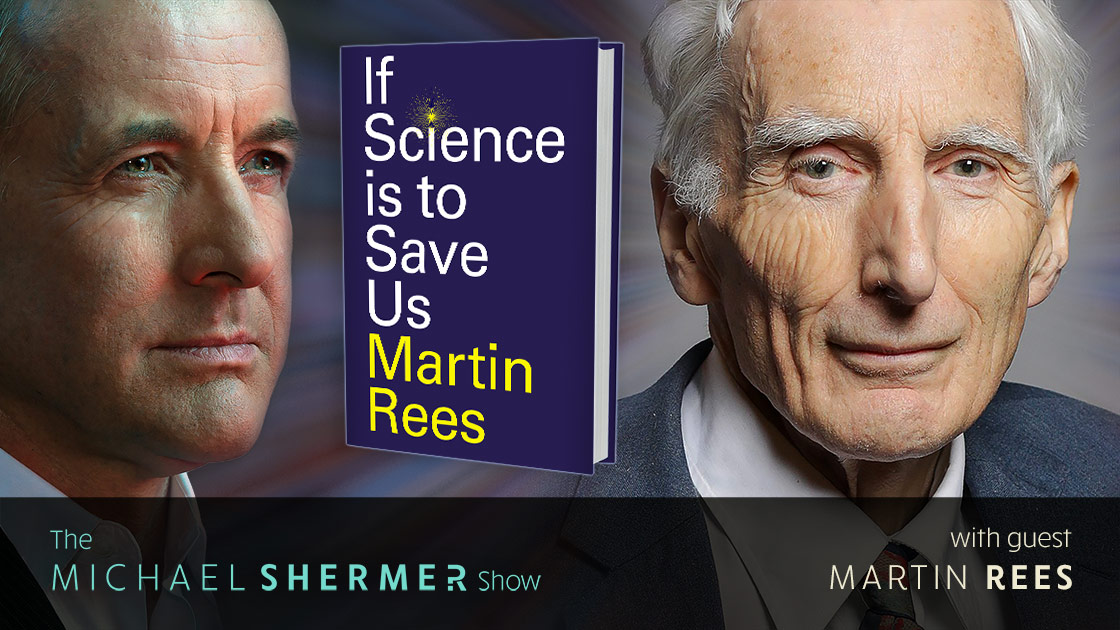
Shermer and Rees discuss: existential threats • overpopulation • biodiversity loss • climate change • AI and self-driving cars, robots, and unemployment • his bet with Steven Pinker • his disagreement with Richard Dawkins • how science works as a communal activity • scientific creativity • science communication • science education • why there aren’t more women and people of color in STEM fields • verification vs. falsification • Bayesian reasoning and scientific progress • Model Dependent Realism and the…
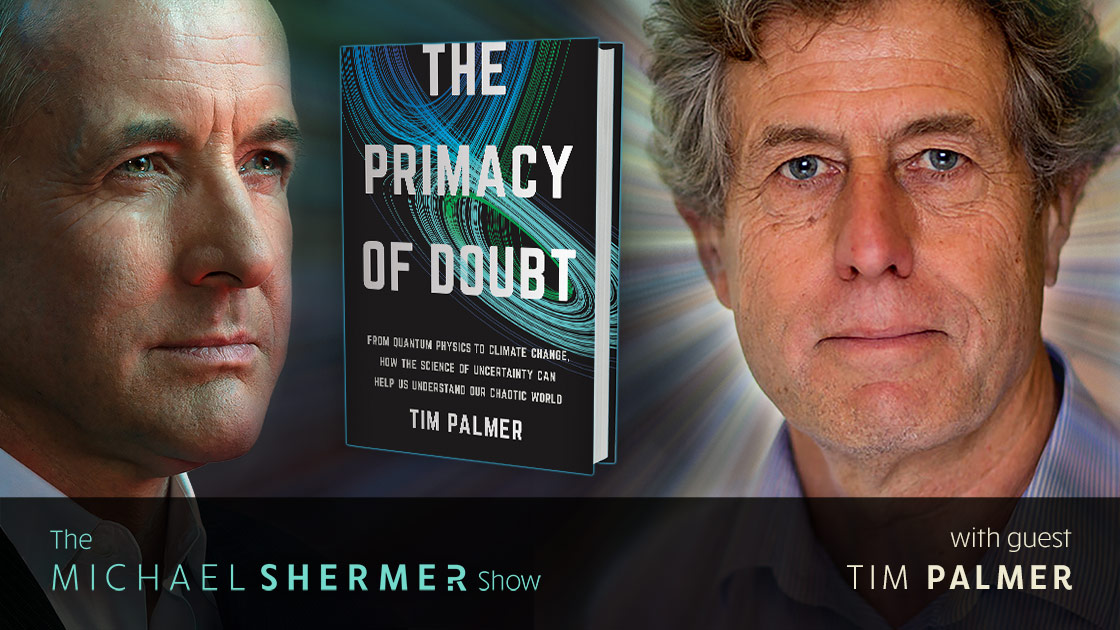
Shermer and Palmer discuss: doubt and skepticism • when doubt slides into denial • uncertainty as a measurement problem vs. inherent in natural systems • contingency and necessity, randomness and law • the butterfly effect • the geometry of chaos • quantum uncertainty • weather forecasting • climate change • pandemics • economic recessions • human decision making and creativity • free will • consciousness, and God.
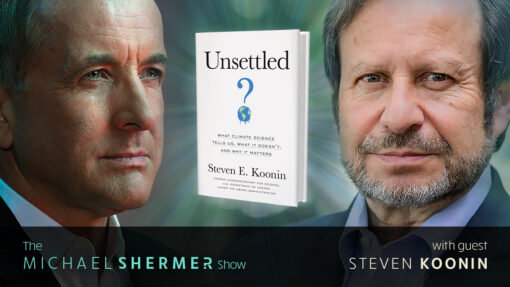
According to Steven Koonin, when it comes to climate change, the media, politicians, and other prominent voices have declared that “the science is settled.” Koonin avers that the long game of telephone from research to reports, to the popular media, is corrupted by misunderstanding and misinformation. Koonin says that core questions about the way the climate is responding to our influence, and what the impacts will be remain largely unanswered.
In episode 228, Michael Shermer speaks with Steven Koonin about what climate science tells us, what it doesn’t, and why it matters, based on his book Unsettled. Plus, we annouce a 6-hour seminar with Bart Ehrman on Dec 5, and recap Michael Shermer’s Substack posts this week.
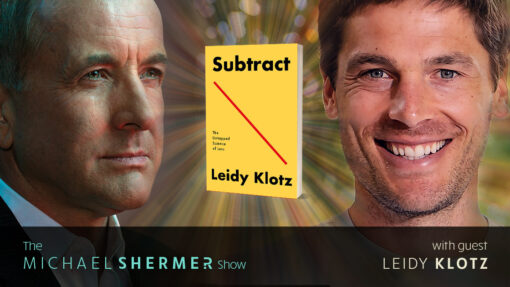
We pile on “to-dos” but don’t consider “stop-doings.” We create incentives for good behavior, but don’t get rid of obstacles to it. We collect new-and-improved ideas, but don’t prune the outdated ones. Every day, across challenges big and small, we neglect a basic way to make things better: we don’t subtract. In episode 210, Michael Shermer speaks with Leidy Klotz about his book Subtract: The Untapped Science of Less.
We pile on “to-dos” but don’t consider “stop-doings.” We create incentives for good behavior, but don’t get rid of obstacles to it. In episode 210, Michael Shermer speaks with Leidy Klotz about his book Subtract: The Untapped Science of Less. PLUS Do you believe that men have greater power and privilege because they are stronger, more aggressive, and smarter than women (and don’t have babies)? Think again.
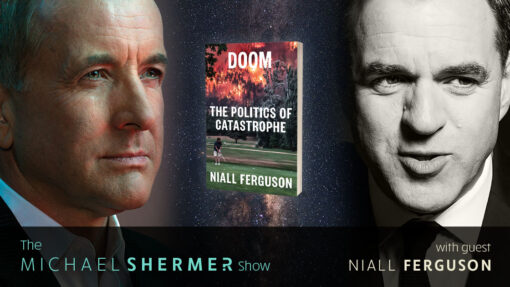
In episode 179 of Michael Shermer’s podcast, Michael Shermer speaks with one of the world’s most renowned historians, Niall Ferguson, who explains why our ever more bureaucratic and complex systems are making us worse, not better, at handling disasters.
In episode 179 of Michael Shermer’s podcast, Michael Shermer speaks with one of the world’s most renowned historians, Niall Ferguson, who explains why our ever more bureaucratic and complex systems are making us worse, not better, at handling disasters.

A hidden set of rules governs who owns what — explaining everything from whether you can recline your airplane seat to why HBO lets you borrow a password illegally. In episode 166 of The Michael Shermer Show, Dr. Shermer speaks with two acclaimed law professors — Michael Heller & James Salzman — who reveal how things become “mine.” Surprisingly, there are just six simple stories that everyone uses to claim everything…
A hidden set of rules governs who owns what — explaining everything from whether you can recline your airplane seat to why HBO lets you borrow a password illegally. In episode 166 of The Michael Shermer Show, Dr. Shermer speaks with two acclaimed law professors — Michael Heller & James Salzman — who reveal how things become “mine.” Surprisingly, there are just six simple stories that everyone uses to claim everything… PLUS: In the ninth CUPES report, we investigated the…
In Science Salon podcast # 141, Michael Shermer speaks with Richard Kreitner about this new book: Break it Up: Secession, Division, and the Secret History of America’s Imperfect Union.
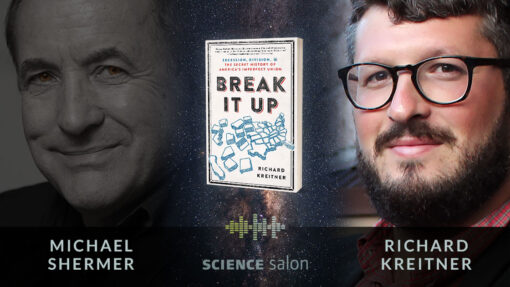
Investigative journalist Richard Kreitner takes us on a revolutionary journey through American history, revealing the power and persistence of disunion movements in every era and region. The provocative thesis of Break It Up is simple: The United States has never lived up to its name—and never will. The disunionist impulse may have found its greatest expression in the Civil War, but the seduction of secession wasn’t limited to the South or the 19th century. It was there at our founding…
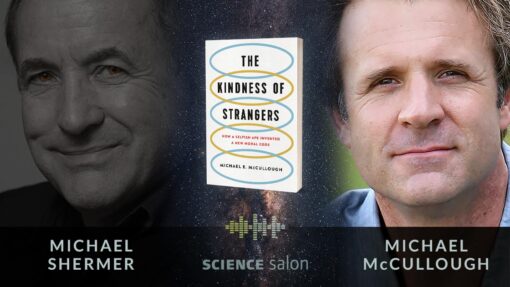
In this sweeping psychological history of human goodness — from the foundations of evolution to the modern political and social challenges humanity is now facing — psychologist Michael McCullough answers a fundamental question: How did humans, a species of self-centered apes, come to care about others?
Whether at home or on the go, the SKEPTIC App is the easiest way to read your favorite articles. Within the app, users can purchase the current issue and back issues. Download the app today and get a 30-day free trial subscription.







